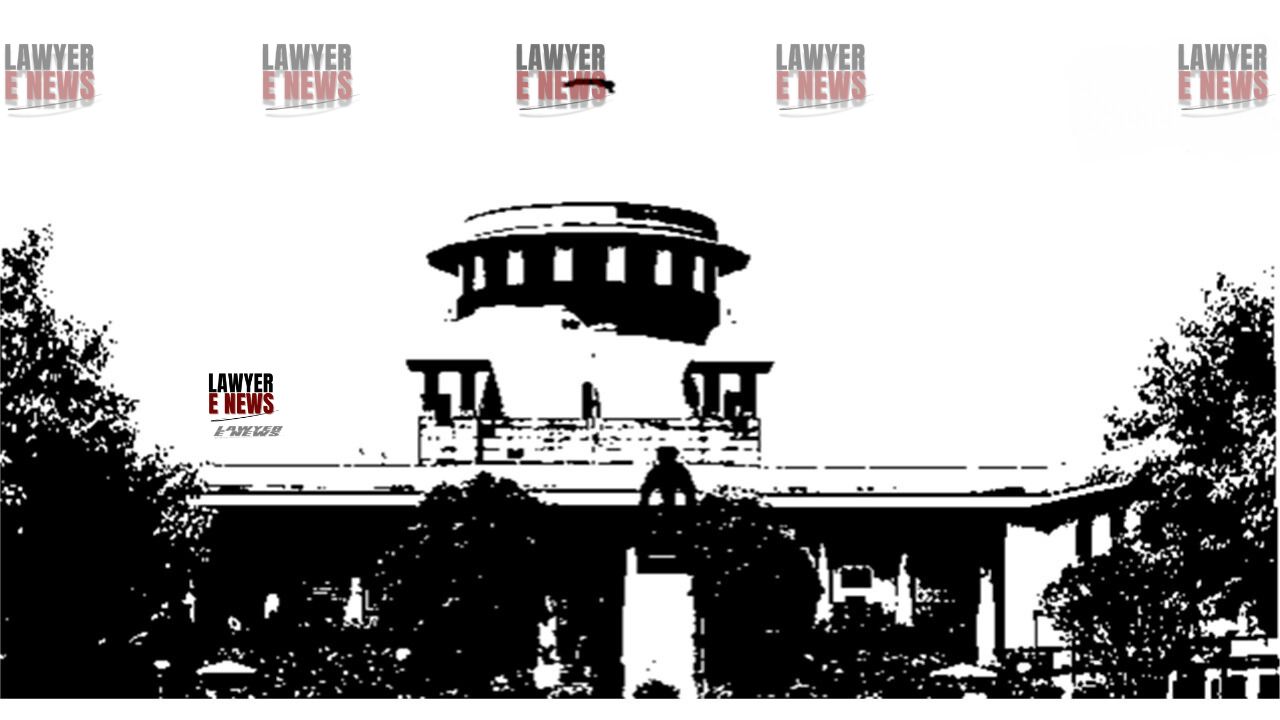-
by Admin
15 February 2026 5:35 AM



When a public servant’s actions are connected to official duties, even if alleged to be excessive, sanction under Section 197 of CrPC is a mandatory prerequisite for prosecution - Supreme Court quashed criminal proceedings initiated against a public servant for actions performed during official duties. The bench comprising Justice B.V. Nagarathna and Justice Nongmeikapam Kotiswar Singh held that the absence of sanction under Section 197 of the Code of Criminal Procedure, 1973 (CrPC) vitiated the entire proceedings, rendering the summoning order and subsequent trial non-est.
The case revolved around allegations of illegal demolition of a college building by Gurmeet Kaur, the then District Town Planner (Enforcement), Gurgaon. The Court concluded that the demolition was within the scope of the appellant’s official duties and therefore required prior sanction for prosecution.
“Acts Connected to Official Duty Cannot Be Prosecuted Without Sanction”
The Supreme Court reiterated the protection afforded to public servants under Section 197 CrPC, emphasizing that:
“The object of Section 197 is to shield public servants from unwarranted harassment and frivolous prosecution for acts reasonably connected to their official duties. Even if the act is alleged to be excessive, it does not strip the public servant of this protection.”
The bench referred to its landmark decisions, including D. Devaraja v. Owais Sabeer Hussain (2020), where it held:
“Sanction is required not only for acts done in discharge of official duty but also for acts purported to be done in discharge of official duty or under the color of office.”
Applying this principle, the Court observed that the demolition was not carried out independently by the appellant but under the orders of her superiors. Therefore, the act was intrinsically linked to her official duties, and sanction was indispensable before the initiation of criminal proceedings.
The appellant, Gurmeet Kaur, was accused by the respondent, Devender Gupta, of forcibly demolishing parts of the Anupama College of Engineering in Gurgaon in 2007. The demolition was allegedly conducted with police assistance and heavy machinery.
The respondent alleged malafide intent, claiming that the demolition was retaliation for his refusal to pay an illegal bribe of ₹20 lakhs. Further, he contended that the building was constructed prior to the notification declaring the area as a "Controlled Area" under the Punjab Scheduled Roads and Controlled Areas Restriction of Unregulated Development Act, 1963.
In 2010, the respondent filed a private criminal complaint under Sections 323, 452, 506, 427, 384, 440, 166, and 120-B of the IPC, leading to the issuance of a summoning order against the appellant.
The appellant challenged the summoning order before the Punjab and Haryana High Court under Section 482 CrPC, but her plea was dismissed. Aggrieved, she approached the Supreme Court.
The Court concluded that the demolition action taken by the appellant was well within the scope of her official duties as District Town Planner (Enforcement). It stated:
“There was a direct correlation between the demolition and the performance of the appellant’s official duties. The demolition was carried out under the orders of her superior officers and in compliance with the applicable legal framework.”
The Court also rejected the argument that the pendency of an application for regularization of the construction absolved the respondent of liability for unauthorized construction:
“The mere pendency of an application for regularization would not bar the enforcement of a restoration or demolition order.”
No Evidence of Malafide Intent or Excess
The Court found no substantive evidence to support the allegation of malafide intent or excessive use of power by the appellant. It noted:
“The act of demolition cannot be termed as an ‘excess’ or as an independent act dehors the scope of the appellant’s official authority.”
Mandatory Nature of Sanction Under Section 197 CrPC
The Court highlighted the mandatory nature of sanction under Section 197 CrPC:
“For a court to take cognizance of any offence allegedly committed by a public servant while acting in the discharge of official duty, prior sanction from the appropriate government is a sine qua non. The absence of such sanction renders the proceedings void.”
The Court relied on precedents such as D.T. Virupakshappa v. C. Subhash (2015) and Amod Kumar Kanth v. Association of Victims of Uphaar Tragedy (2023) to conclude that the summoning order was invalid in the absence of sanction.
Allowing the appeal, the Supreme Court quashed the summoning order and all subsequent criminal proceedings. It declared:
“The initiation of the complaint against the appellant, in the absence of prior sanction under Section 197 CrPC, is non-est in law.”
However, the Court granted liberty to the respondent to seek sanction and initiate proceedings in compliance with the law:
“The first respondent is at liberty to approach the competent authority to seek sanction and, if deemed appropriate, initiate fresh proceedings in accordance with law.”
Key Takeaways
Public Servants Cannot Be Prosecuted Without Sanction: Acts connected to official duties, even if alleged to be excessive or malafide, cannot be prosecuted without prior sanction under Section 197 CrPC.
Protection of Public Servants: The judgment underscores the importance of protecting public servants from frivolous or vexatious litigation, ensuring that they can perform their duties without fear of unwarranted prosecution.
Case-by-Case Analysis: The Court emphasized that whether sanction is required depends on the facts of each case and the connection between the alleged act and official duties.
Date of decision: November 26, 2024
